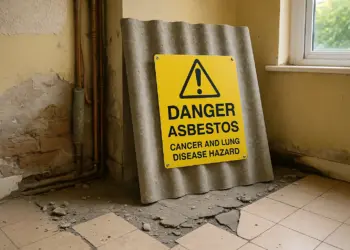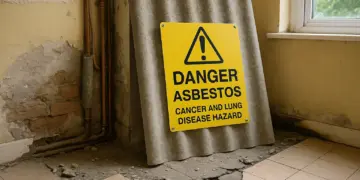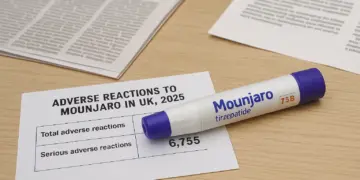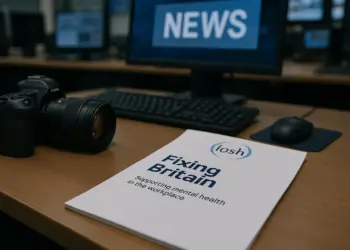Story Highlight
– UK urged to safeguard children from toxic toy chemicals.
– Scientists warn UK regulations lag behind EU standards.
– PFAS chemicals linked to serious health risks in children.
– Call to update 2011 Toy Safety Directive for protection.
– Government claims robust safety laws already in place.
Full Story
The UK Government is facing mounting pressure to enhance protections for children against toys infused with “forever chemicals.” A collective of fifty experts, including scientists, academics, and patient advocacy groups, has expressed their concerns in a formal letter to Kate Dearden, the Minister for Consumer Protection. They argue that the UK’s current safety regulations may lag behind those in the European Union, raising the risk that British children could be exposed to toys that are deemed unsafe by EU standards.
The concerns centre around specific harmful substances, notably bisphenols found in items such as teething toys and PFAS (per- and polyfluoroalkyl substances). Known for their durability, these chemicals are often referred to as “forever chemicals” due to their resistance to breaking down in the environment. Such substances can be present in various soft toys, including cushioned balls and building blocks.
Experts emphasise that children are particularly susceptible to the adverse effects of these chemicals during critical developmental stages. Professor Paul Fowler, who leads the Translational Medical Sciences programme at the University of Aberdeen, highlighted the significant health risks associated with PFAS exposure, indicating that children have heightened vulnerability. In an interview with the PA news agency, he stated, “PFAS are increasingly associated with a wide range of adverse health effects. Children are particularly vulnerable to adverse effects.”
Professor Fowler elaborated on the health risks posed by exposure to endocrine disruptors, noting a spectrum of impacts, from being born smaller than expected for gestational age to impairments in brain and immune system development. He points out that while the EU has recognised the inadequacies of its regulatory framework regarding these substances, the UK appears to be moving in a different direction, particularly in England, which may soon stray further from EU norms.
In their correspondence, the signatories, which include representatives from Chem Trust and the British Thyroid Foundation, urged the UK Government to revise its 2011 Toy Safety Directive to align with the latest EU regulations. They argued that toys should serve to foster child development and learning, and pointed out that the inclusion of harmful chemicals contradicts this purpose. The letter declares, “The EU revised the Toy Safety Directive because it was not adequately protecting children from harmful chemicals, and we urge you to match this science-led approach.”
The experts further cautioned that failing to update regulations would allow UK children to play with toys that have been deemed unacceptable in the EU, exposing them to chemicals with potentially irreversible health impacts. Julia Priestley, the Chief Executive of the British Thyroid Foundation, who is among the letter’s signatories, stressed the urgent need for protective measures. “It is vital that babies and small children are protected from the potential risks of exposure to any chemicals that may harm their development,” she said. She praised the EU legislation for safeguarding children and called for the UK Government to implement equivalent regulations.
In response to these concerns, a Government spokesperson asserted that the UK possesses some of the strictest product safety laws globally. The spokesperson confirmed that any products entering the UK market must comply with rigorous safety criteria. Additionally, the Government highlighted ongoing efforts to address contemporary safety challenges related to chemical risks, stating that product safety laws are being updated to ensure the protection of children and the general public. The spokesperson also indicated that measures are in place to prevent unsafe or non-compliant products from being accessible to consumers.
As these discussions unfold, the voices of scientists and advocacy groups continue to resonate, urging for a swift and decisive action to avert future health risks to children from potentially hazardous toys containing these enduring chemicals. The call for updated regulations reflects a broader concern regarding children’s safety and the implications of environmental toxins on developmental health across the UK.























This is a timely and necessary call to action. Children are uniquely vulnerable to chemicals that interfere with development, and current protections are not keeping pace with the science. Updating toy safety requirements to limit bisphenols, PFAS and other persistent toxic substances would reduce avoidable health risks and bring UK standards closer to those that better protect children elsewhere. Policymakers should prioritise clear toxicant limits, routine testing and stronger enforcement, and work with manufacturers to phase out hazardous materials while supporting safer alternatives.
This is a timely and necessary call to action. Regulations written in 2011 cannot be relied on to protect children from chemicals that were not fully understood then. Policymakers should update the Toy Safety Directive to align with the best current science, prioritising vulnerable age groups and setting clear limits on bisphenols and PFAS. Stronger testing, mandatory labelling and enforcement with meaningful penalties will help keep unsafe products out of the market. The focus must be on prevention and precaution to protect children’s health now and in the future.
This is a timely and necessary call to action. Current toy safety rules do not reflect the growing scientific evidence on substances such as bisphenols and PFAS and the particular vulnerability of children during development. Strengthening the Toy Safety Directive to align with the stricter standards used elsewhere would reduce avoidable exposures and give parents and carers greater confidence that products on the market are safe. Any revision should prioritise clear limits on hazardous chemicals, mandatory testing and labelling, and robust enforcement to ensure non compliant products are removed quickly. Investing now in stronger regulations will prevent long term health harms and is a sensible public health measure.
This is sensible and overdue. Current toy safety rules were set when the science on persistent chemicals and endocrine disrupting substances was less developed. Updating the regulations to align with stronger standards would better protect children during vulnerable developmental stages and reduce avoidable exposures. Policymakers should prioritise clear limits on bisphenols and PFAS, require manufacturers to disclose relevant chemicals and safer alternatives, and ensure testing and enforcement are adequately resourced. Stronger rules will level the playing field for responsible producers and give parents greater confidence that toys are safe.